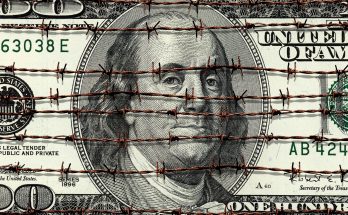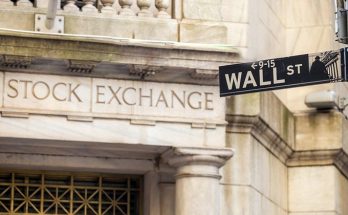Since the 2008 financial crisis, stocks have been in a prolonged bull market, generating positive returns for several years. These returns are high enough to draw many investors to the equity markets. This, coupled with the low rates offered on savings accounts, is drawing more investors toward stocks.
Let's take a look at some of the important risk factors to consider when investing in cash versus stocks and managing risk optimization.
Key Takeaways
Stocks have had a great run over the last decade, while the rates offered by savings accounts continued to fall.Investors are being drawn toward more risky investments in search of yield and returns.However, investors must consider volatility and current interest rates when deciding on how much to invest in cash versus stocks.For investors looking to gain exposure to stocks, one advisable strategy is dollar-cost averaging (DCA) into index funds.
Things to Remember About Stocks
The stock market ebbs and flows, with periods of ups and downs, bull runs and bear slumps. Granted there have been a lot more ups than downs over the last decades. The S&P 500 is up 195% for the 10-year period ending Oct. 9, 2020—or an annualized +11.4% return.
But, since it is difficult to predict which way the market will go,market timingis ill-advised. Instead, investors can allocate money toindex funds via dollar-cost averaging (DCA)instead of keeping cash on the sidelines.
With that said, one of the keys to growing a portfolio is minimizing losses. Market timing with cash and strategic stock purchases can be vital to keeping your losses as low as possible.
Key Considerations
Volatility
Volatility is a key factor when investing in stocks. In other words, how quickly or severely do prices whip around. High volatility can cause investors to panic sell. Stock volatility can be more than many investors want to handle on a daily basis.
Monetary Policy
Monetary policy is another factor to follow along with volatility. It can greatly influence the market’s investment demand and how investors allocate their money. Setting interest rates low helps to stimulate borrowing while higher rates cause more investors to save. However, low rates translate into lower rates for savings accounts and fixed income.
In 2015, the Federal Reserve raised the federal funds rate for the first time in seven years, finally up from 0% to 0.25%. Then the federal funds rate range set by the Fed went from 0.25% to 0.50% in 2015 to 2.25% to 2.5% in December 2018. However, since then, the fed funds rate has been in steady decline, now back down to the 0% to 0.25% range amid the COVID-19 pandemic.
Corporate Profitability
Corporate profits can transfer directly into stock prices. While companies have been generating strong profits for the last several years, the pandemic is expected to strain corporate profits for the foreseeable future.
This is fueling broader corporate profit growth across the market with volatility, but making stock investments attractive generally. As the global trade war thickens, this profile may change, and trade definitely influences the global internationals.
Alternatively, many of the global internationals are also top dividend-paying companies, which affects income investors deciding between stocks and cash as well.
Cash vs. Stocks
Investors deciding on whether to invest in stocks or hold cash will need to keep a close eye on interest rates. One of the downsides of holding cash is that the buying power of your money slowly deteriorates due to inflation. Right now, the rates being paid on savings accounts and Treasuries are not keeping pace with inflation.
The 10-year Treasury rate as of Oct. 8, 2020, was 0.78%. Meanwhile, the inflation rate for the 12 months ending in August was 1.3%. One of the big issues for cash investors these days is that interest rates have trended lower for years and remains near historical lows.
That said, below are some additional considerations for cash versus stocks in 2020 and beyond.
Are company profits growing or stable? Many may consider oil companies a great buy because their stock prices have fallen. But buyer beware—the market may not stabilize and improve as fast as some expect.
Arethe dividends currently being paidstable?Dividends are a large portion of the total return you get on a stock. If a company has a solid dividend-paying history and a relatively low payout ratio, then you might consider buying it.
Are stocks safe to own for the next five years given the current market conditions? In other words, do you have enough conviction in the stock’s value or growth prospects to believe in its ability to weather the market’s volatility?
The amount of money you are willing to invest in cash versus stocks will also be influenced by your risk tolerance and investing goals. Investors who need funds for emergencies or are saving for high-ticket purchases will want to invest more in cash. Investors with greater risk tolerance and longer-term horizons for investing can put more money toward stocks.
The Bottom Line
Where the stock market or economy is headed, and at what pace, will vary based on the investment professional you follow. While the solid returns following the financial crisis might not be replicated anytime soon, the current interest rates are low and pushing investors away from cash.
This article is from https://www.investopedia.com/, if there is any copyright issue, please contact the webmaster to delete it.









